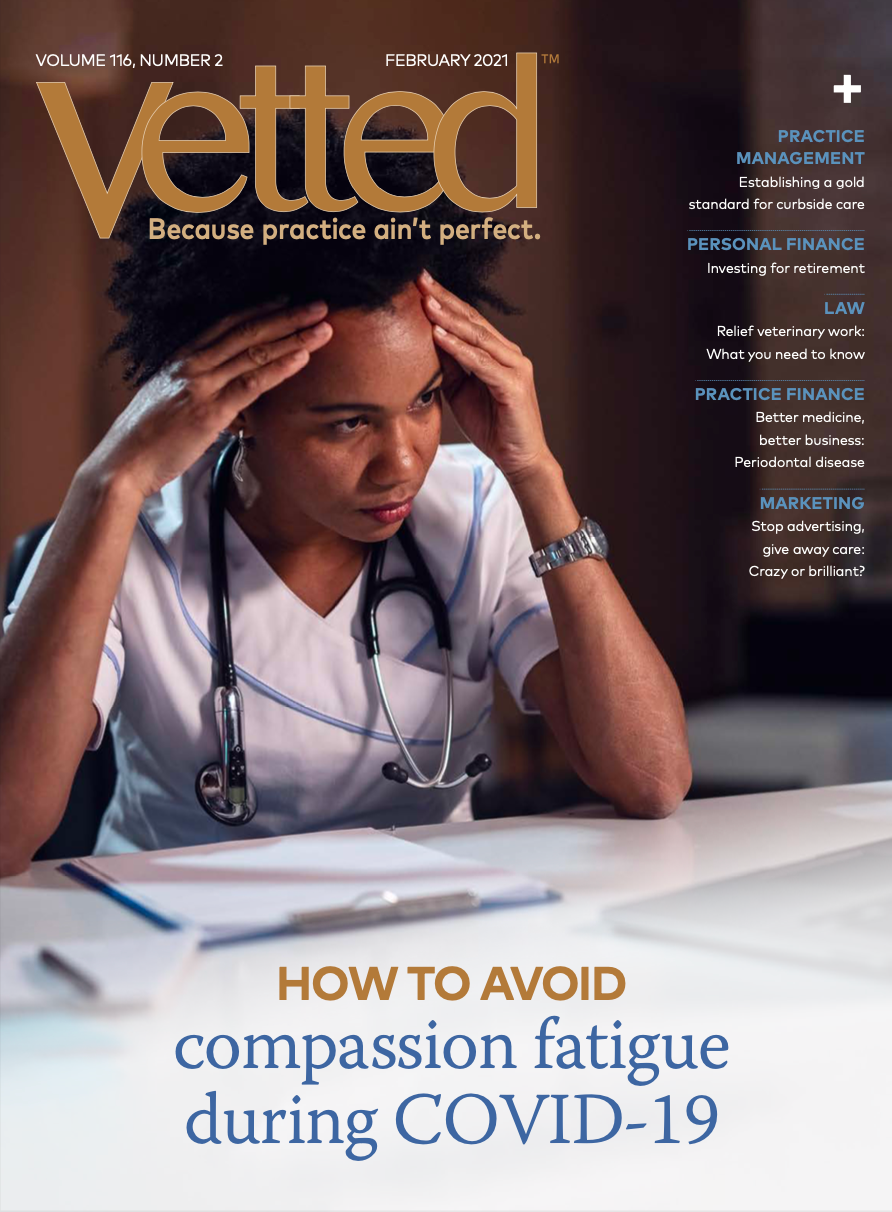Are you working your veterinary team stupid?
It might sound crazy, but research shows that overworking could affect your brain. If you and your team are working 40-hour plus weeks, it might be time make some adjustments.

djoronimo/stock.adobe.comI recently saw a job ad on Facebook for a full-time veterinarian. The ad claimed that the veterinarian would work 32 hours a week, four days a week. A skeptic had commented below the ad post: “Nice job, advertisement. It's a nice thought, but we all know that veterinarians don't actually work eight hours a day when scheduled … we almost always go overtime.”
That skeptic had a point. You know the deal. Your four days turn into five days, because you come in on your day off to catch up on notes or check up on a patient. Then your 32 hours turn into 40 hours and possibly even 50 when you stay a couple hours behind to finish an appointment or come in early to prep for surgery. Is that a problem?
Henry Ford was one of the first employers to implement the eight-hour workday during the Industrial Revolution. Prior to the 20th century, it was common for workers to put in 12 or more hours a day, perhaps six or seven days a week.
The truth of the matter is, there was no science behind his decision-he just thought it was a good idea and made business sense. After he shortened the workday, employee productivity soared and the company's profit margins doubled. What's wrong with that? Let me tell you.
Why I reduced my work hours
I personally understood the importance of reducing my hours at work when I realized it could be making me dumber. A 2009 study concluded that working longer hours was associated with lower scores on cognitive performance tests. In other words, you are literally working your employees stupid.
All jokes aside, I just realized that I didn't have enough recovery time from the cognitive and physical stress of work. I would occasionally get emotional hangovers after working some intense cases, where I literally needed to sleep all day after the end of my work week just to feel rested. The research and knowledge I've gained around the need for recovery did stem from what I learned about how traumatic stress affects the body. (See "Your brain on trauma.")
Being an avid runner as well, I know that there are days where I absolutely cannot run if I am recovering from a tough muscular workout. There are tactics I can employ that might speed up my recovery, but I still need time to recover. It doesn't mean I don't love my job, or that I don't love running. It just means I have to be realistic about how much I can do effectively. As a relief veterinarian (and “elder” millennial), having the freedom to play around with my schedule allowed me to figure out what works best for me.
What you can learn from millennials
Millennials get a bad rap for being quick to jump from one job to another, or for wanting too much pay, and not wanting to work. But in actuality, maybe it's just that millennials are trying to figure out how they can find their place in the working world and be happy. A 2013 study led by research and consulting firm Millennial Branding found that 45% of millennials prioritize workplace flexibility over pay when choosing an employer. And if they're unhappy, millennials are faster to leave for greener pastures than older generations of workers-leaving employers with expensive turnover costs.
Work-life balance
I usually work on average 20 hours a week in clinics. I also balance my clinical work with the work I do with the Veterinary Confessionals Project, public speaking and writing, which usually adds anywhere from eight to 10 hours a week.
On average, I work a 30-hour work week. The flexibility factor is great, and not having a consecutive set of hours is helpful. In clinics where the hours are consecutive-sometimes even a 12- or 14-hour shift on a crazy day in the ER-I still feel they're manageable enough for adequate recovery time so that when I show up to my next shift, I am consistently functioning at an optimum level. The rest of my time is spent sleeping, running, hiking, traveling and spending time with family and friends. I can happily say that I have great work-life balance. If you still think work-life balance doesn't exist, you may need to re-evaluate how you're using your time.
Make the necessary changes for your overall wellbeing
I'm not arguing that everyone should be doing what I'm doing or the way I'm doing it. I'm just suggesting that we need to start discuss ways to make time for hard work, but also full recovery from that hard work. Whether this shift comes from an attentive boss, a forward-thinking practice manager or you personally, it's worth considering. Perhaps as it did in the days of Henry Ford, reconsidering the workday may actually lead to greener pastures, and this may be a slice of history worth repeating.
Frequent Fetch dvm360 speaker Dr. Hilal Dogan, a certified clinical trauma professional, practices medicine in Denver, Colorado. She started the Veterinary Confessionals Project as a senior veterinary student at Massey University in New Zealand.
